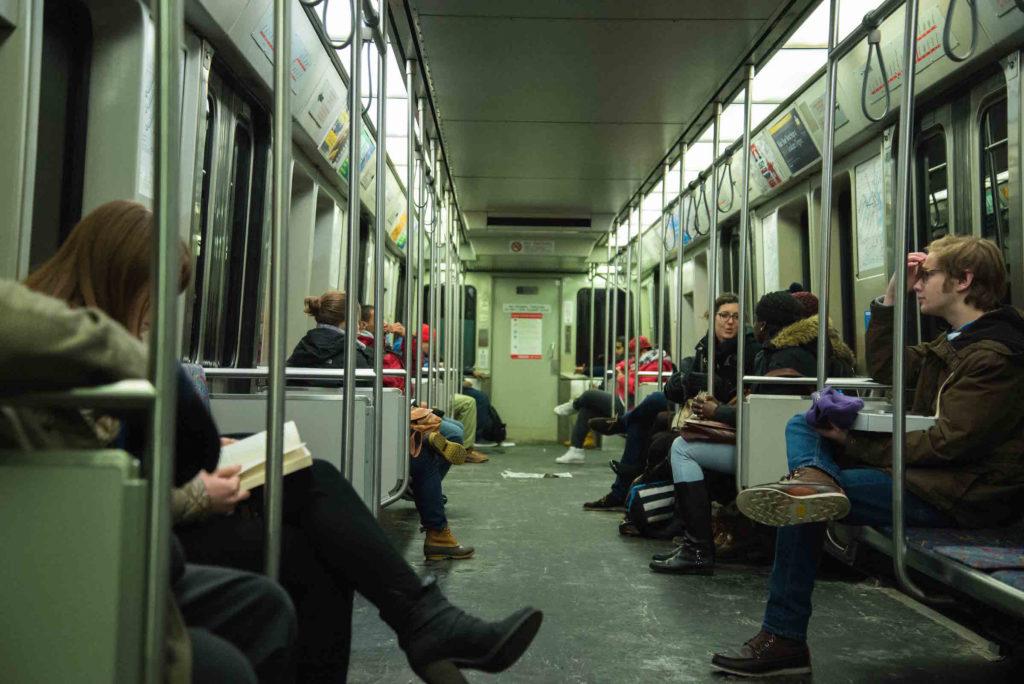By Varun Goyal, news correspondent
Due to a lack of corporate sponsors, underfunding may contribute to the death of the MBTA’s one-year late-night program.
The program, announced by former governor Deval Patrick last March, allows riders to use the T between 12:30 and 3 a.m. on Saturdays and Sundays. So far, it has attracted more than 860,000 total customers, according to MBTA spokesman Joe Pesaturo.
However, the program has only drawn two corporate sponsorships: $500,000 from the Boston Globe and $250,000 from the Red Sox. Another $100,000 in cash was deposited into the MBTA’s operating revenues, which funds late-night and other MBTA services. The rest went toward promotional services at the beginning of the pilot launch, according to Boston Magazine.
“The one-year pilot program is costing the MBTA about $13 million,” Pesaturo said in an email to The News. “It’s unclear at this time why the program didn’t attract more interest from the private sector.”
To Christopher Bosso, a public policy and urban affairs professor at Northeastern, the lack of corporate sponsors is not a surprise.
“My guess is that [businesses are] unlikely to sponsor a service that most feel should be provided by the public, particularly those who use it,” Bosso said in an email to The News.
According to Peter Furth, a civil and environmental engineering professor at Northeastern, although the pilot program is a quality service, the MBTA is already operating at a deficit.
“It just costs too much,” Furth said. “Fares everywhere have to be subsidized… The costs are going up faster than the revenue can come in.”
Last July, the price of subway and bus rides increased by 10 cents. Combined monthly passes jumped by $5, monthly bus passes by $2 and the commuter rail by $5 to $17 depending on the distance traveled.
To help fund the MBTA, Patrick proposed an increase in gasoline taxes in January 2013. An excise tax would be imposed on the purchase of gas. Although the bill was rejected that summer, some believe that such a tax would have helped fund the late-night program.
“We’ve got to support a big increase in the gas tax so that our transportation agency has money so that they can do what we want them to do,” Furth said. “We have to find a way to have good quality public transportation without paying high costs.”
Government regulation also plays a role in the lack of funding for the transportation agency. Although many people use the T to stay out at clubs and bars, in Massachusetts, bars are prohibited from selling alcohol after 1:30 a.m. and must close by 2 a.m. By contrast, in New York City, some nightclubs are open 24 hours.
Approximately 218,734 people between the ages of 20 and 34 live in the Greater Boston Area, according to five-year estimates from the US Census Bureau. These young people could take advantage of and help boost a nightlife economy.
Despite the lack of monetary support from corporate sponsors, many Bostonians want the program to keep running.
Senior physical therapy major Valery Notaro believes the program is great for people who are out on the weekends or traveling.
“It’s another option to get home more safely,” Notaro said.
Overnight public transportation has become standard for international cities. In light of Boston securing the US Olympic bid, many believe that city officials should become more serious about how they want the city to be seen.
“Every world-class city serious about public transportation has an overnight or at least late-night service,” Furth said. “We don’t want to be dependent on cars. We should do [the program].”
Photo by Scotty Schenck









